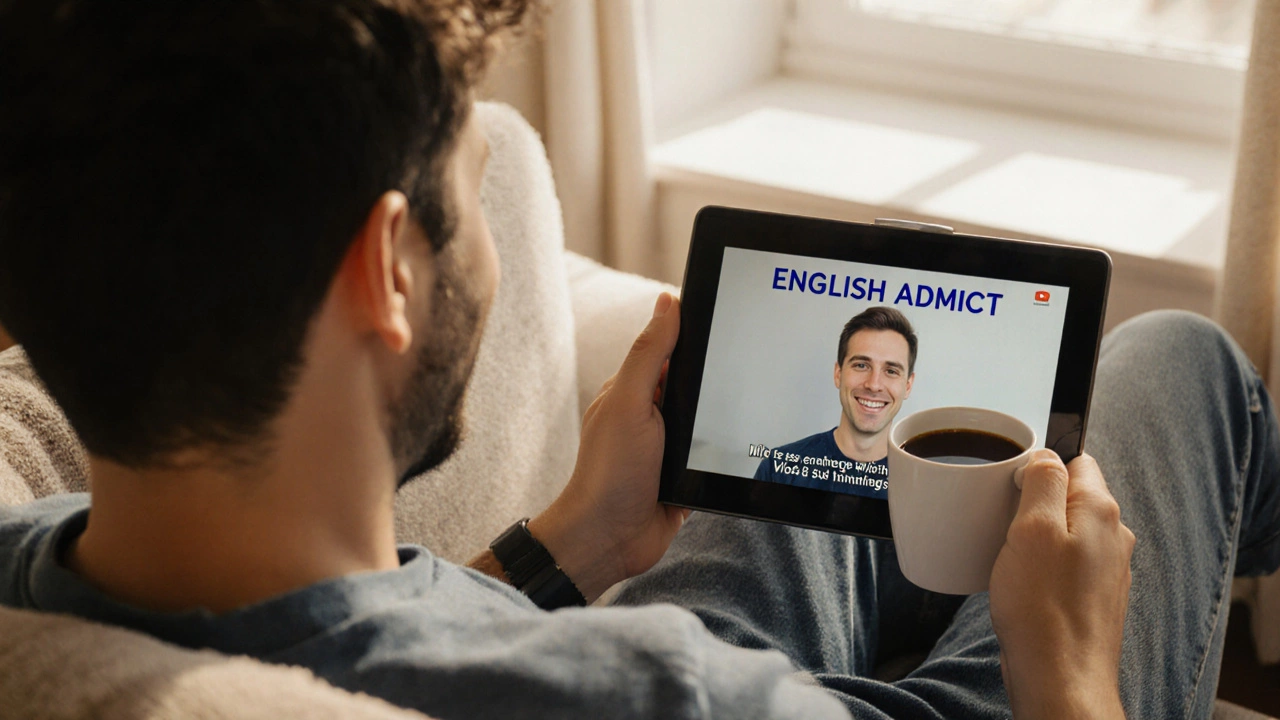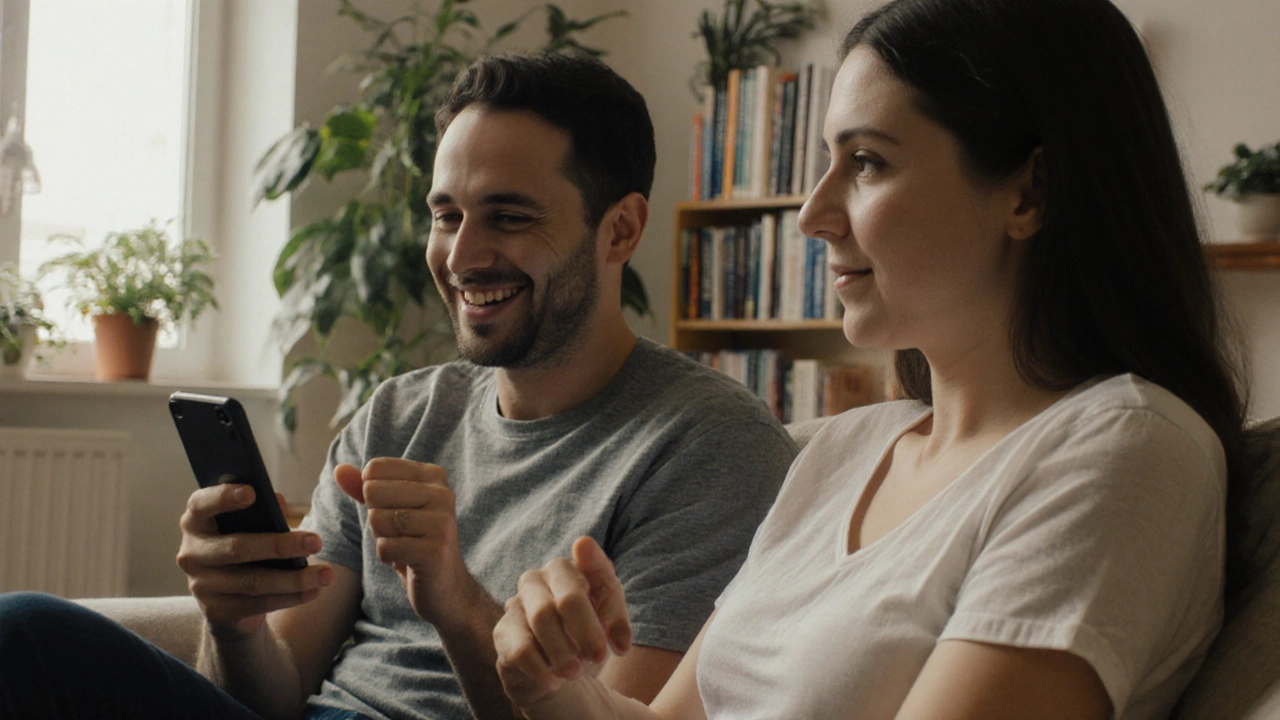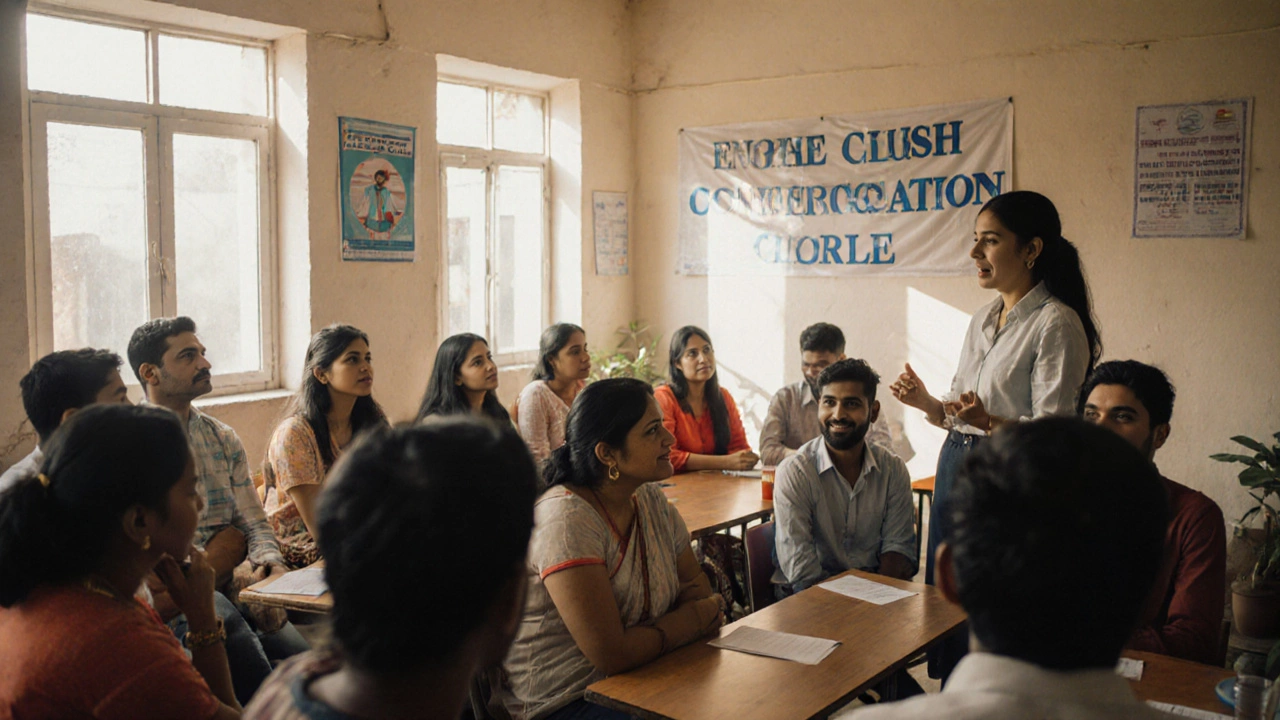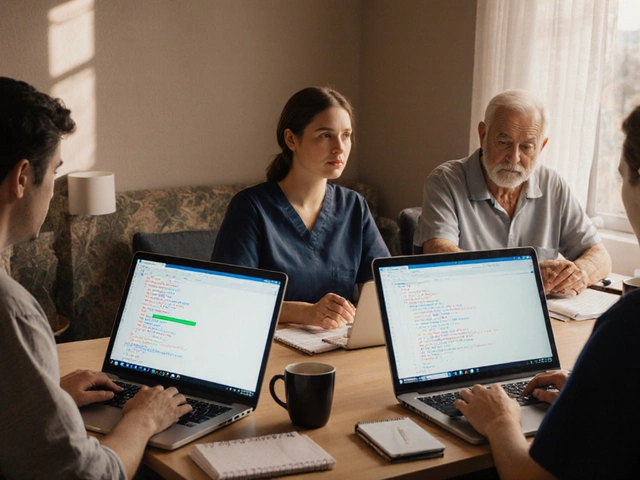
English Speaking Practice Estimator
Find out how long it will take to reach conversational English based on your daily practice time
Your Progress Estimate
Free toolBased on the article's guidance, consistent practice leads to real improvement in 3-6 months with 15-20 minutes daily.
Want to speak English but don’t want to spend a dime? You’re not alone. Millions of people around the world are learning to speak English for work, travel, or just to feel more confident - and they’re doing it without paying for classes. The truth is, you don’t need a $500 course to start speaking clearly and naturally. You just need the right tools, a little consistency, and the willingness to make mistakes.
YouTube is your secret classroom
YouTube isn’t just for cat videos and music clips. It’s one of the biggest free English-speaking schools on the planet. Channels like English Addict with Mr Steve break down real conversations into simple chunks. You’ll hear how native speakers actually talk - not the scripted lines from textbooks. Watch a 10-minute video every morning while you drink your coffee. Don’t just listen. Repeat after them. Shadow their rhythm. Pause and mimic their intonation. This isn’t passive learning. It’s active training.
Another great channel is Learn English with Emma. She teaches everyday phrases you’ll actually use - like how to order coffee, ask for directions, or handle small talk at a party. She speaks slowly, clearly, and shows you how to respond naturally. No grammar lectures. Just real speech.
Language exchange apps connect you to real people
Apps like Tandem and HelloTalk let you swap language practice with native English speakers. You help someone learn your language for 15 minutes, and they help you speak English for 15 minutes. It’s a fair trade. You’re not just practicing grammar - you’re having actual conversations.
One user from Brazil told me she went from barely being able to say her name in English to holding 20-minute chats with her language partner in six months. She didn’t study vocabulary lists. She talked about her dog, her job, and what she watched on TV last night. That’s how real speaking skills build - through real topics, not textbook exercises.
Tip: Don’t wait until you feel “ready.” Start with simple sentences. “I like pizza.” “I watched a movie yesterday.” The more you speak, the faster your brain learns to find the words.
Podcasts that sound like friends talking
Listening to podcasts while commuting, walking, or cooking helps your ears get used to natural English. But not all podcasts are created equal. Skip the ones where the host reads news articles out loud. Instead, pick shows designed for learners.
ESLPod is perfect. Each episode is 10-20 minutes long and focuses on one topic - like job interviews, shopping, or making small talk. The hosts slow down, explain phrases, and repeat key sentences. You can even download transcripts to read along.
The English We Speak by BBC Learning English is another gem. Each episode is just three minutes long and teaches one common phrase - like “I’m broke” or “Let’s call it a day.” You’ll hear how native speakers say things you won’t find in any grammar book.

Free speaking practice with AI
AI tools like ChatGPT, Google Gemini, or Microsoft Copilot can be your personal English coach - if you use them right. Don’t just ask for translations. Ask for conversations.
Try this: “Let’s pretend you’re a barista in New York. I’m a customer. Start the conversation.” Then answer as if you’re really there. The AI will respond naturally. If you say something wrong, it will correct you gently. You can do this anytime - 5 minutes before bed, during lunch, on your phone.
One user in India practiced daily with AI for 30 days. He started by saying “I am very happy” and ended up saying “I’m stoked!” and “That’s awesome!” - phrases he heard in movies and real life. He didn’t memorize them. He learned them by using them.
Public speaking groups you can join for free
Toastmasters is a global network of clubs where people practice speaking in front of others. Many chapters offer free guest visits. You don’t have to give a speech right away. Just show up. Listen. Maybe say one sentence. The next week, say two. Slowly, you’ll find your voice.
If there’s no Toastmasters near you, look for local language meetups on Meetup.com. Many cities have free English conversation circles - often hosted by volunteers in libraries or community centers. In Wellington, there’s a group that meets every Thursday at the central library. No fees. No pressure. Just people trying to get better.
Watch movies and TV shows - the smart way
Watching Netflix or Disney+ isn’t just entertainment. It’s training. But don’t just turn on the subtitles and zone out. Use them strategically.
Start with English subtitles. Watch a short scene - 2 minutes max. Pause after each line. Say it out loud. Then turn off the subtitles and try to repeat it from memory. Do this three times. Now, watch the scene again without any subtitles. Can you understand most of it? That’s progress.
Shows like Friends, The Crown, or Stranger Things are great because they use everyday language. Avoid heavy dramas with thick accents or fast-paced news programs. Start simple. Build up.

Record yourself - it’s uncomfortable, but it works
Most people hate hearing their own voice. But if you want to improve your speaking, you have to face it. Grab your phone. Record yourself answering this question: “What did you do last weekend?”
Listen back. Do you pause too much? Do you say “um” every two seconds? Do you sound nervous? That’s normal. Now do it again. And again. Each time, you’ll notice small improvements. After a week, you’ll hear how far you’ve come.
One woman from Mexico recorded herself every day for 30 days. On day one, she sounded unsure. On day 30, she sounded calm and clear. She didn’t take a class. She just kept showing up for herself.
What not to do
Don’t waste time memorizing lists of 500 vocabulary words. You won’t remember them unless you use them in real sentences.
Don’t wait until you’re “good enough” to speak. That moment never comes. You get good by speaking - not by studying.
Don’t compare yourself to others. Someone who’s been learning for 10 years might sound fluent. But you’re not competing with them. You’re competing with the person you were yesterday.
Start tomorrow - not next week
You don’t need money. You don’t need a fancy app. You just need to start. Pick one thing from this list and do it tomorrow.
- Watch one YouTube video and repeat after it
- Send one message on Tandem
- Record yourself speaking for 60 seconds
- Listen to one podcast episode and shadow it
Consistency beats intensity. Five minutes a day, every day, will change your speaking more than five hours once a month. Speak even if you’re scared. Speak even if you make mistakes. Speak because you want to be heard.
Can I really learn to speak English for free?
Yes. Thousands of people speak English fluently today because they used free resources - YouTube, podcasts, language exchange apps, and AI tools. You don’t need to pay for a course to speak well. You need to practice regularly with real content and real people.
How long does it take to speak English well for free?
It depends on how often you practice. If you spend 15-20 minutes a day speaking, listening, and repeating, you’ll notice real improvement in 3-6 months. After a year, many learners can hold confident conversations. The key isn’t how long you study - it’s how often you speak.
What’s the best free app to learn speaking English?
There’s no single “best” app, but Tandem and HelloTalk stand out because they connect you with real native speakers. For AI practice, ChatGPT or Gemini work well if you use them for conversations, not just questions. YouTube channels like English Addict with Mr Steve and Learn English with Emma offer structured speaking practice for free.
Do I need to know grammar to speak English?
You don’t need to memorize rules to speak. Most native speakers don’t think about grammar when they talk. Focus on understanding and being understood. If you hear someone say “I’ve been working,” you don’t need to know why it’s present perfect - just learn to say it yourself. Grammar helps later, but speaking comes first.
What if I’m too shy to speak?
Start small. Talk to yourself in the mirror. Record your voice. Practice with AI. Then try one short message on a language app. No one is judging you. Everyone started somewhere. The more you speak, the less scary it becomes. Shyness fades with action, not with waiting.




